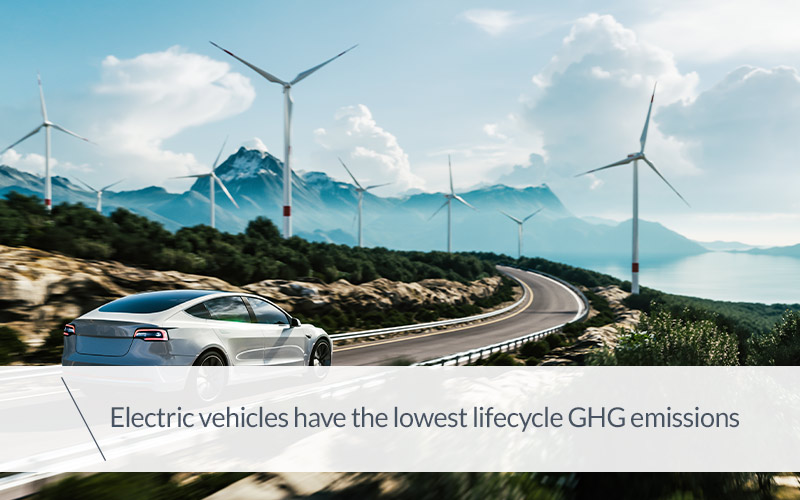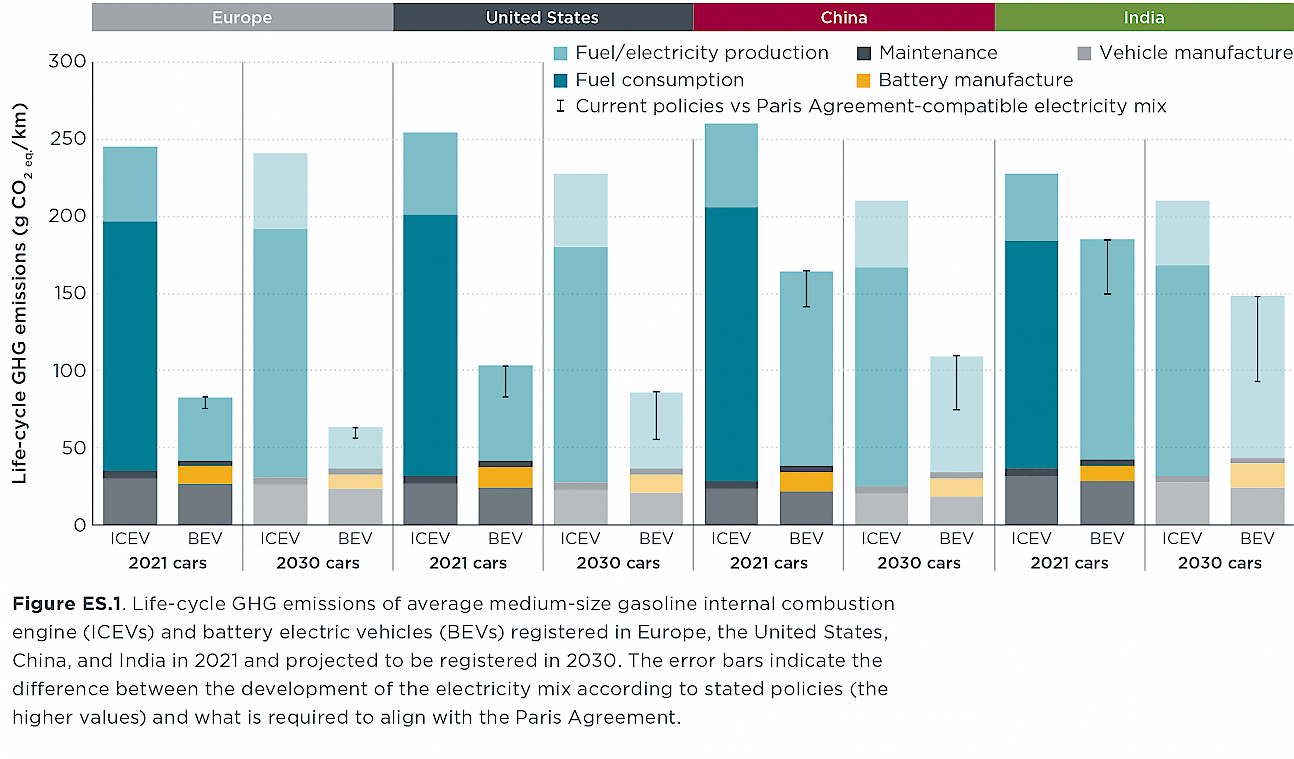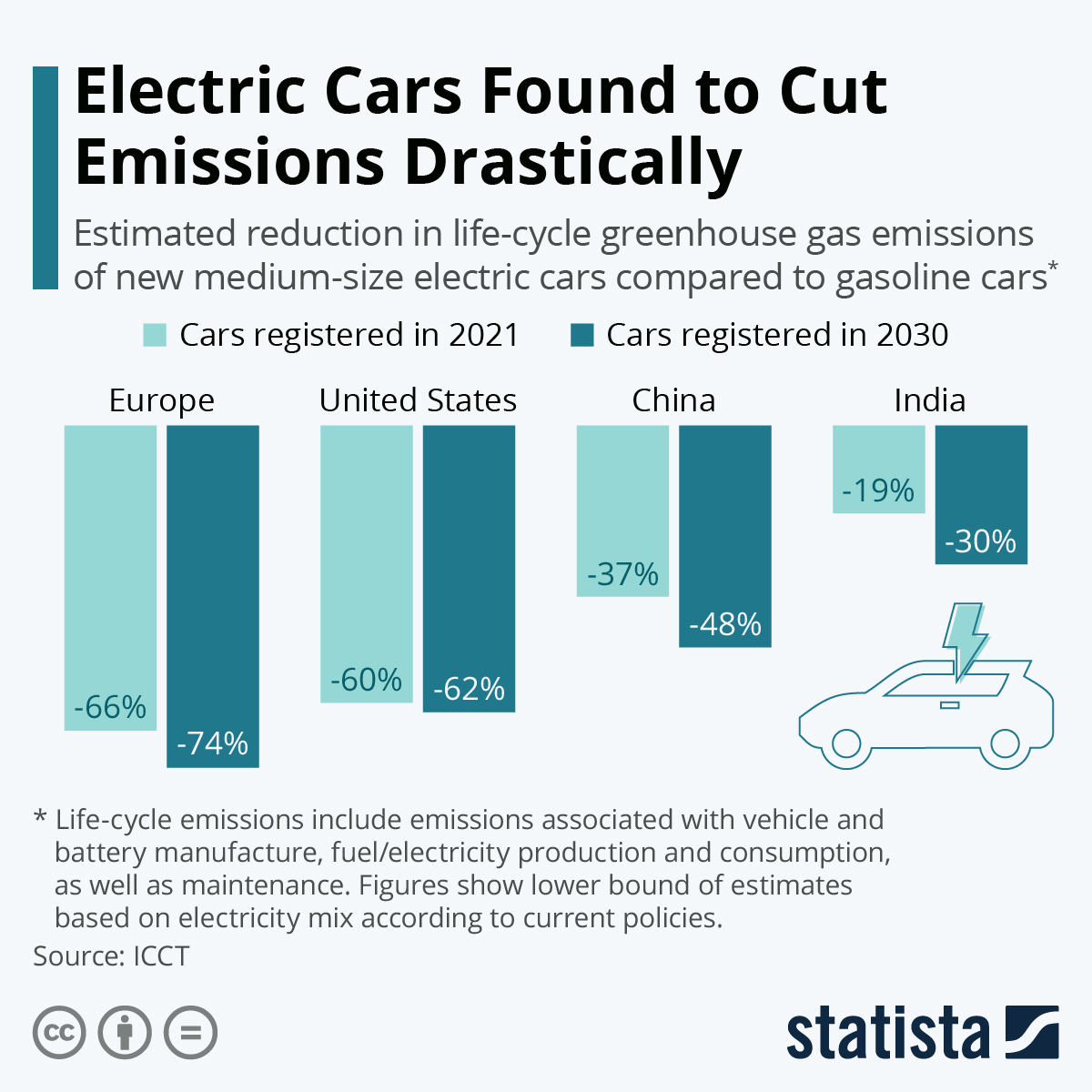
In a report published last July by ICCT (the International Council on Clean Transportation), titled “A global comparison of life-cycle GHG emissions from passenger cars”, we find an in-depth analysis and all-encompassing comparison between different powertrains, regarding car lifecycles and emissions of greenhouse gases.
Many studies were conducted separately, analysing data from Europe, USA, China and India, which represent roughly 70% of global new cars sales.
As is common knowledge, commitments by various world countries are aimed at a gradual reduction of CO2 emissions, to the point of reaching total decarbonisation over the next few decades. The process of electrification via the production of green energy from renewable sources is a key point to reach this goal.
In addition, we need to consider the total impact of vehicles, which needs to be correctly analysed throughout their whole lifecycle.
The impact of vehicles: lifecycles and greenhouse gas emissions
The basic principle behind the report is very simple: a vehicle does not start to produce greenhouse gases simply when it is powered up and used for the first time on the road. This is because the entire lifecycle has an environmental impact, including the extraction and processing of raw materials, right up to vehicle production and usage, and finally recycling or disposal.
Consequently, to properly understand the real impact of passenger vehicles on our planet, we need to understand the relationship between their lifecycle and emissions.
The study carried out by ICCT takes into consideration all widely-available engine types, including plug-in hybrids, electric vehicles and a range of those fed by fuels including biofuels, E-fuels, hydrogen and electricity.
Greenhouse emissions from the lifecycle of cars registered in 2021 were compared with those of vehicles which ought to be registered in 2030.
Here is what emerged from the report.
Electric cars absolutely have the lowest impact
The results of the study don’t leave much room for doubt or interpretation, clearly showing that even when compared to vehicles registered today - therefore held to much higher environmental impact standards than in the past - battery-powered electric (BEV) vehicles easily have the lowest greenhouse gas emissions over their lifecycle.
As the following chart shows, average emissions over the lifecycle of medium size BEVs registered today are already lower than those of petrol-powered vehicles.
Here follow the percentages:
- emissions 66%–69% lower in Europe
- emissions 60%–68% lower in USA
- emissions 37%–45% lower in China
- emissions 19%-34% lower in India

As mentioned above, the current process of decarbonisation will bring about an increase in the gap between emissions over the lifecycle of electric and petrol powered vehicles, if we consider medium sized-vehicles to be registered in 2030.
“The results highlight the importance of grid decarbonization alongside vehicle electrification. The life-cycle GHG performance of electric cars will improve as grids decarbonize, and regulations that promote electrification are crucial to capturing the future benefits of renewable energy.” (Peter Mock, ICCT’s managing director for Europe)
These are the forecasts cited in the ICCT report relative to the gap in the two vehicle types for 2030 if we reach a higher decarbonisation level (as is expected):
- emissions 74%–77% lower in Europe
- emissions 62%–76% lower USA
- emissions 48%-64% lower in China
- emissions 30%-56% lower in India
This chart (created by Statista) makes everything crystal-clear.
 You will find more infographics at Statista
You will find more infographics at Statista
Conclusions
Electric cars entirely fueled by renewable energies correspond to 81% less emissions of greenhouse gases over their lifecycle compared to vehicles moved by petrol engines.
Simply stated, by using electric cars charged with electricity from renewable sources, the climate changing gas emissions produced by cars over their lifecycle could be reduced by approximately 80%.



